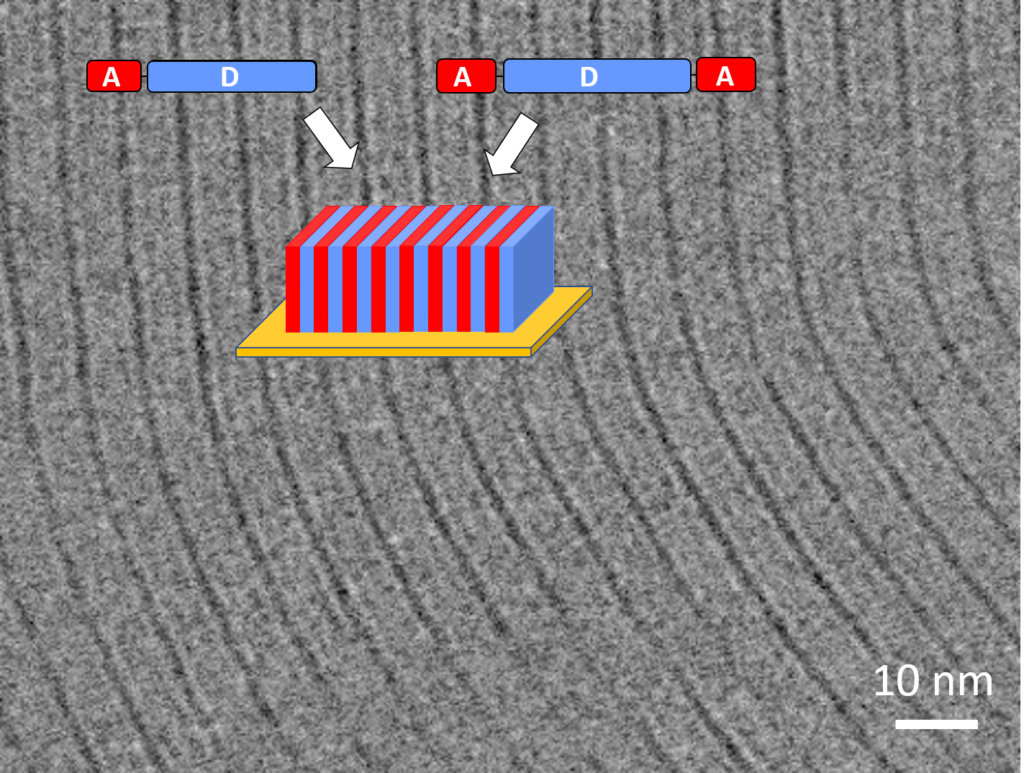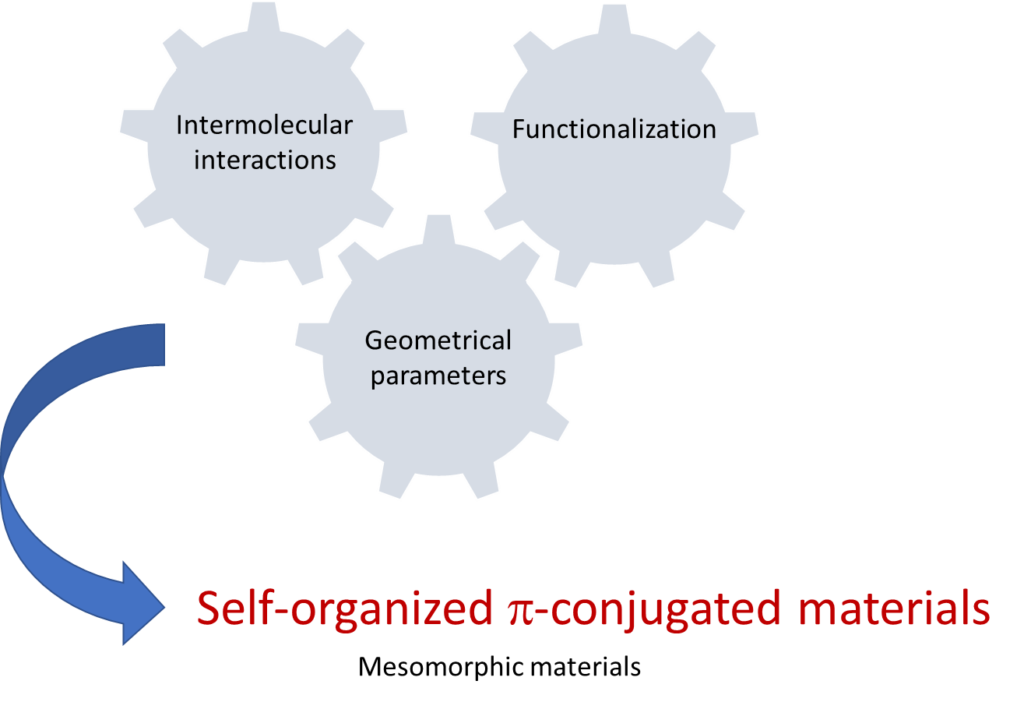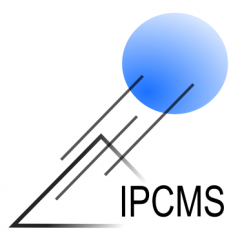
Self-organized pi-conjugated materials are of great interest for many applications, such as in organic electronics, since the charge transport properties crucially depend on the organization and the orientation of the molecules.
We currently design and synthesize self-organized pi-conjugated molecular and macromolecular systems by acting on three parameters :
- The intermolecular interactions, such as pi-pi-interactions
- The functionalization by flexible chains (alkyls or siloxanes).
- The geometrical parameters (i.e. molecular distances, areas and volumes)

Functionalization by flexible chains is of great importance as these chains usually segregate from the aromatic part of the (macro)molecules in localized subdomains. If the chains are flexible enough, the chain sub-domains do not crystallize but remain in a disordered melted state, ultimately leading to the formation of mesomorphic materials.
- Example 1.

- Example 2.

Collaborators
The following members of the Consortium on Organic Electronic in Strasbourg (STELORG):
- N. Leclerc (ICPEES, Strasbourg)
- P. Lévêque, S. Fall & T. Heiser (ICube, Strasbourg)
- L. Biniek & M. Brinkmann (ICS, Strasbourg)
and
- F. Mathevet (IPCM-Sorbonne, Paris)
